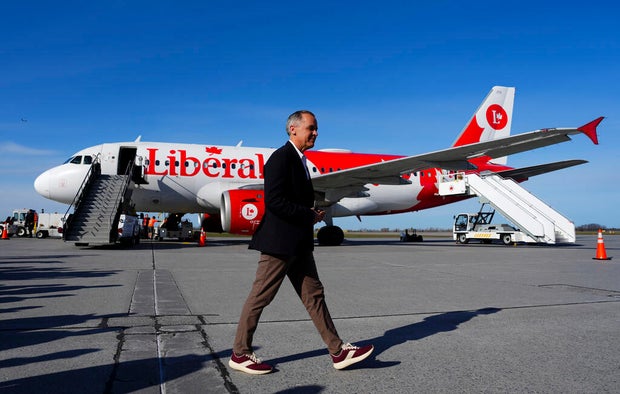In a dramatic political contest that captured the attention of North America and beyond, Canada’s Liberal Party, under the new leadership of Prime Minister Mark Carney, secured victory in the recent federal election held on Monday. This win marks a significant momentum shift in Canadian politics, influenced heavily by the escalating geopolitical tensions with the United States under President Donald Trump’s administration.
The election concluded with the Liberals projected to take a substantial number of seats in Canada’s 343-member Parliament, outpacing their main contenders, the Conservatives. Although it was not immediately clear if the Liberals would achieve an outright majority, which requires at least 172 seats, the results suggested that they might need support from smaller parties to pass future legislation.
This electoral outcome provided the Liberal Party with its fourth consecutive term in government, this time with Carney steering the ship. This decision by the electorate was a notable deviation from earlier predictions, which had favored the Conservatives and their populist leader, Pierre Poilievre. Only a few months prior to the election, Poilievre was widely expected to unseat the Liberals, according to political analysts.
The backdrop to this election was dominated by external threats and economic strategies, primarily emanating from President Trump. The campaign period was overshadowed by Trump’s controversial remarks about potentially annexing Canada and imposing heavy tariffs on Canadian exports, both of which deeply impacted the Canadian economy and resonated with voters. Domestic issues such as affordability, immigration, crime, and job creation also played significant roles but were often overshadowed by the international drama.
Prime Minister Carney, in his victory speech, portrayed the election as a referendum on Canadian sovereignty in the face of American aggression. He emphatically stated that Canada would never succumb to external threats and emphasized the urgent need for the nation to redefine its relationship with the United States. He declared, “America wants our land, our resources, our water, our country. Never,” signaling a stark departure from previously cordial relations fostered by mutual economic and cultural ties.
Carney further described this moment as a pivotal one in history, indicating an end to the era of “open global trade, anchored by the United States,” a system that Canada had relied on since the aftermath of World War II. Despite the benefits it brought, Carney dubbed the recent shifts as “tragedies” but necessary ones as Canada faced its “new reality.”
On the following day, Trump called to congratulate Carney, a conversation that, according to Carney’s office, ended with both leaders agreeing on the importance of cooperation between Canada and the United States as sovereign, independent nations. They planned to meet in person soon to discuss future bilateral relations.
The election also marked a severe blow to Poilievre, who not only lost the election but also his seat in Parliament—a seat he had held since 2004. However, Poilievre vowed to continue leading his party and emphasized his commitment to holding the government accountable.
Voter turnout was notably high, with an estimated 7.3 million Canadians participating in advance voting, marking a 25% increase from the 2021 elections. At the polls, voters expressed diverging views on how best to handle Trump’s threats and economic policies, which had ripple effects across global markets.
Some voters connected with the Liberals’ message of standing firm against American pressures. For instance, a couple in Milton City, Ontario, voiced their concerns about Trump’s tariffs directly impacting their cost of living, stating that the price hikes in goods, ranging from food to other essentials, were troubling. Others like John Ivsky, a self-employed businessman, highlighted the need for Canada to diversify its international partnerships beyond the United States to avoid being overly dependent on one nation’s political climate.
Election night saw mixed reactions across party lines, with Conservatives drawing some unwelcome comparisons to Trump’s style of leadership, particularly regarding environmental issues. Criticisms of Poilievre’s positions on reintroducing plastic bags and straws were noted as particularly discordant with progressive voter sentiments.
The election underscored the intricate dynamics of Canadian politics, especially in the context of wider international developments. It also highlighted the broader socio-economic issues at stake and provided a stark illustration of how global leaders’ policies and statements can influence domestic political outcomes in another nation. As Prime Minister Carney prepares for his term, Canada stands at a crossroads, facing both unprecedented challenges and opportunities in defining its path forward on the global stage.









